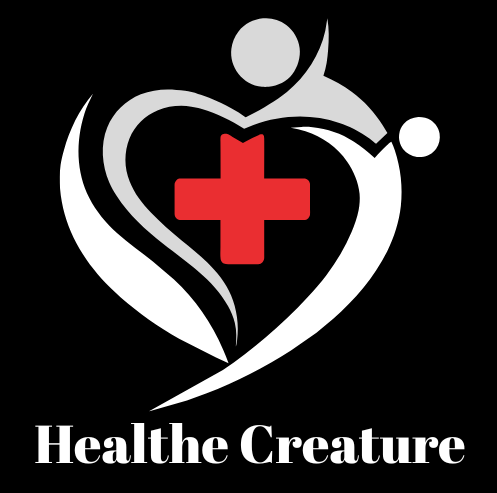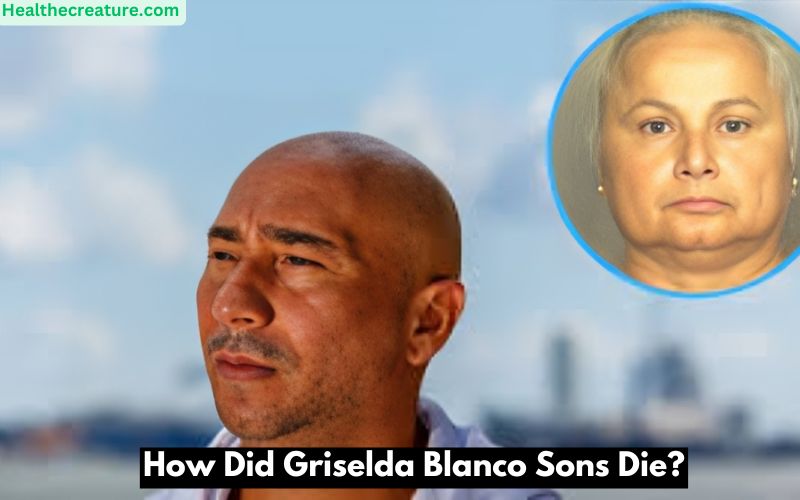Griselda Blanco, infamously known as the “Black Widow” or “The Cocaine Godmother,” is one of the most iconic and feared figures in the history of organized crime. As a Colombian drug lord, she rose to prominence in the 1970s and 1980s, overseeing a cocaine empire that spanned continents and brought billions of dollars to her organization. Yet, behind the wealth, notoriety, and power lay a darker story of violence, betrayal, and loss—particularly within her family. Her sons, born into a life of crime, became unwitting participants in her empire and ultimately suffered tragic fates. This article explores the lives and untimely deaths of Griselda Blanco’s sons, shedding light on the far-reaching consequences of a life steeped in crime.
Griselda Blanco: A Legacy of Crime and Violence
To understand the tragedy of Blanco’s sons, we must first explore the extraordinary life of their mother. Born in Cartagena, Colombia, in 1943, Blanco’s early years were defined by poverty and hardship. By her teenage years, she was involved in petty crime, which eventually escalated into more serious offenses. Her move to Medellín in the 1970s marked the beginning of her rise in the cocaine trade.
Blanco revolutionized drug trafficking by devising innovative smuggling methods, such as hiding cocaine in specially designed lingerie and clothing. Her strategic ruthlessness enabled her to dominate the industry and earn vast wealth. At her peak, she controlled a network that reportedly smuggled over three tons of cocaine into the United States every year. Despite her success, Blanco’s reign was marked by extreme violence. She was believed to be responsible for hundreds of murders, including the deaths of rivals, former lovers, and even close associates who she perceived as threats.
Blanco’s life of crime also set the stage for the future of her children. As a woman who rose to prominence in a male-dominated underworld, she fought fiercely to maintain her power but at a grave cost. Her unrelenting brutality and ambition created an environment of chaos and fear, one that deeply affected her sons.
The Impact of Griselda Blanco’s Lifestyle on Her Sons
Griselda Blanco’s personal life was as turbulent as her professional one. She had three sons: Dixon Trujillo, Uber Trujillo, and Michael Corleone Blanco, each born during different periods of her rise to power. Her sons grew up in the shadow of her criminal empire, witnessing both the benefits of immense wealth and the horrors of unrestrained violence.
Life in the Blanco household was far from conventional. Lavish mansions, luxury cars, and expensive gifts were juxtaposed with constant threats from law enforcement and rival cartels. Blanco’s paranoia and violent tendencies often put her family in danger. Reports suggest that her sons were not only witnesses to her criminal dealings but were also used as pawns in her operations, with some participating in her drug empire as they grew older.
The environment in which her sons were raised made it nearly impossible for them to escape the gravitational pull of her criminal legacy. Surrounded by violence, wealth, and a lack of moral grounding, they faced a future that seemed destined for tragedy.
Dixon and Uber Trujillo: Lives Cut Short by Violence
Dixon and Uber Trujillo, Griselda Blanco’s two eldest sons, were raised in Medellín during the height of their mother’s power. Their early lives were marked by constant upheaval as Blanco expanded her empire across Colombia and into the United States. Both sons eventually became involved in their mother’s operations, a decision that would lead to their untimely deaths.
While details about their lives and deaths remain scarce, it is known that Dixon and Uber were deeply entrenched in the world of drug trafficking. Growing up in Medellín, a city synonymous with the cocaine trade, they were exposed to violence from an early age. As young men, they reportedly helped manage aspects of their mother’s business, further entangling themselves in the dangerous world of organized crime.
Both Dixon and Uber were killed in Colombia, victims of the very violence that sustained their mother’s empire. Some accounts suggest their deaths were the result of rival cartel conflicts, while others point to internal betrayals or retaliation for their mother’s actions. Their deaths underscore the perilous nature of their lives and the inescapable consequences of their involvement in the drug trade.
The Fate of Michael Corleone Blanco
Michael Corleone Blanco, Griselda Blanco’s youngest son, had a life marked by both privilege and danger. Named after the iconic character from The Godfather films, Michael’s name itself was a testament to his mother’s fascination with power and crime. Born during the height of Blanco’s reign, he grew up surrounded by unimaginable wealth but also constant threats.
Unlike his brothers, Michael spent much of his early life in Miami, Florida, where his mother had established her U.S. operations. However, life was far from stable. Blanco was arrested and imprisoned in 1985, leaving Michael to navigate life without her direct presence. Despite this, he remained deeply loyal to his mother and later admitted that her influence played a significant role in shaping his early years.
As Michael grew older, he too became involved in the drug trade. However, his criminal activities were often overshadowed by the notoriety of his mother’s name. After Blanco’s release from prison and eventual assassination in Medellín in 2012, Michael began to reassess his life. Recognizing the dangers of following in his mother’s footsteps, he sought to distance himself from his past.
In recent years, Michael has attempted to build a legitimate life, launching a clothing line that capitalizes on his family’s infamous legacy. While he has expressed remorse for some of his past actions, he remains a controversial figure, with many questioning whether he has truly left his criminal ties behind.
The Psychological Toll of Growing Up in a Criminal Empire
The psychological impact of growing up under Griselda Blanco’s shadow cannot be understated. For her sons, their upbringing was defined by instability, trauma, and a skewed sense of normalcy. Constant exposure to violence and the loss of loved ones created deep emotional scars that shaped their identities and choices.
For Dixon and Uber, the pressures of living up to their mother’s expectations and surviving in the dangerous world of drug trafficking proved overwhelming. Their involvement in the trade ultimately led to their violent deaths, highlighting the devastating consequences of their upbringing.
Michael, on the other hand, has spoken openly about the challenges of breaking free from his family’s legacy. In interviews, he has described the guilt and trauma of losing his brothers and the struggle to create a new life for himself. His journey reflects the immense psychological toll of being born into a world of crime and the difficulty of escaping its grasp.
The Broader Impact of Griselda Blanco’s Legacy
Griselda Blanco’s influence extended far beyond her immediate family. Her reign as the “Cocaine Godmother” left a lasting impact on the drug trade, law enforcement, and popular culture. Her methods and brutality set a precedent for future cartels, and her story continues to fascinate the public, as evidenced by numerous films, documentaries, and books about her life.
However, her legacy is also a cautionary tale about the human cost of crime. Her sons’ tragic fates are a stark reminder of the collateral damage caused by her actions. Beyond her family, the communities affected by her empire suffered from addiction, violence, and social upheaval, consequences that continue to resonate today.
Lessons from the Lives of Griselda Blanco’s Sons
The stories of Dixon, Uber, and Michael Corleone Blanco offer important lessons about the generational impact of crime. They illustrate how the choices of one individual can reverberate through their family and community, creating a cycle of violence and loss.
For Michael, his efforts to rebuild his life demonstrate the possibility of redemption but also highlight the challenges of escaping a past defined by crime. His story serves as a testament to the resilience of the human spirit but also underscores the difficulty of breaking free from a legacy of violence and lawlessness.
See Also: How Did Mr. Krabs Die?
FAQs
Who was Griselda Blanco?
Griselda Blanco, often called the “Cocaine Godmother,” was a Colombian drug lord who rose to power in the 1970s and 1980s. She was one of the most prominent figures in the cocaine trade, smuggling enormous quantities of the drug into the United States and earning billions of dollars. Blanco was known for her ruthlessness and was linked to hundreds of murders during her reign.
How many sons did Griselda Blanco have?
Griselda Blanco had three sons: Dixon Trujillo, Uber Trujillo, and Michael Corleone Blanco. All three were deeply affected by her life of crime and faced significant challenges as a result of their mother’s criminal activities.
How did Griselda Blanco’s sons die?
Dixon and Uber Trujillo were both killed in Colombia under circumstances tied to the violent world of drug trafficking. The exact details of their deaths remain unclear but are believed to involve rival cartels or internal disputes. Michael Corleone Blanco, the youngest son, survived the chaos surrounding his family and is still alive.
What happened to Michael Corleone Blanco?
Michael Corleone Blanco was deeply influenced by his mother’s criminal empire and became involved in the drug trade as a young adult. After Griselda Blanco’s assassination in 2012, Michael sought to distance himself from his criminal past. He now runs a clothing brand called “Pure Blanco,” which capitalizes on his family’s infamous legacy. While he has left the drug trade, his life remains tied to his mother’s notorious history.
Conclusion
The lives and deaths of Griselda Blanco’s sons, Dixon and Uber Trujillo, and the turbulent journey of Michael Corleone Blanco, reflect the profound and far-reaching consequences of their mother’s criminal empire. Their stories are marked by violence, loss, and the struggle to navigate a world shaped by their mother’s choices. While Michael’s survival and efforts to turn his life around offer a glimmer of hope, the broader narrative of Griselda Blanco’s family serves as a somber reminder of the enduring impact of crime and its ability to destroy not only individuals but entire families.


